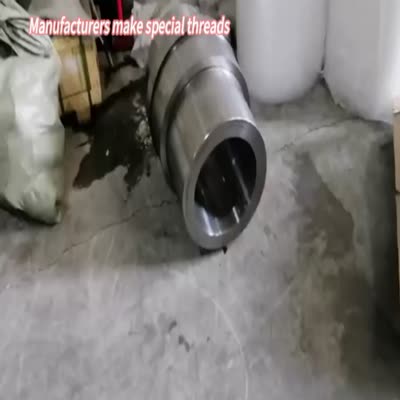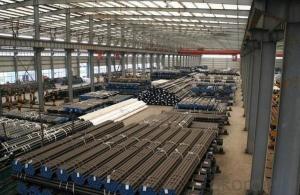418mm P110 Corrosion-Resistant Petroleum Tubing for Oil and Gas Transportation and Deep-Well Drillin
- Loading Port:
- Tianjin
- Payment Terms:
- TT OR LC
- Min Order Qty:
- 1 m.t.
- Supply Capability:
- 1100 m.t./month
OKorder Service Pledge
Quality Product, Order Online Tracking, Timely Delivery
OKorder Financial Service
Credit Rating, Credit Services, Credit Purchasing
You Might Also Like
Specification
Standard:
ASTM,GB,API
Technique:
Hot Rolled,Cold Rolled
Shape:
Round,LTZ
Surface Treatment:
Copper Coated,Galvanized
Steel Grade:
Q195
Certification:
ISO,API
Thickness:
5.21-16.13mm
Length:
R1-R3
Outer Diameter:
4 1/2 -20inch
Net Weight:
14.14-197.93kg/m
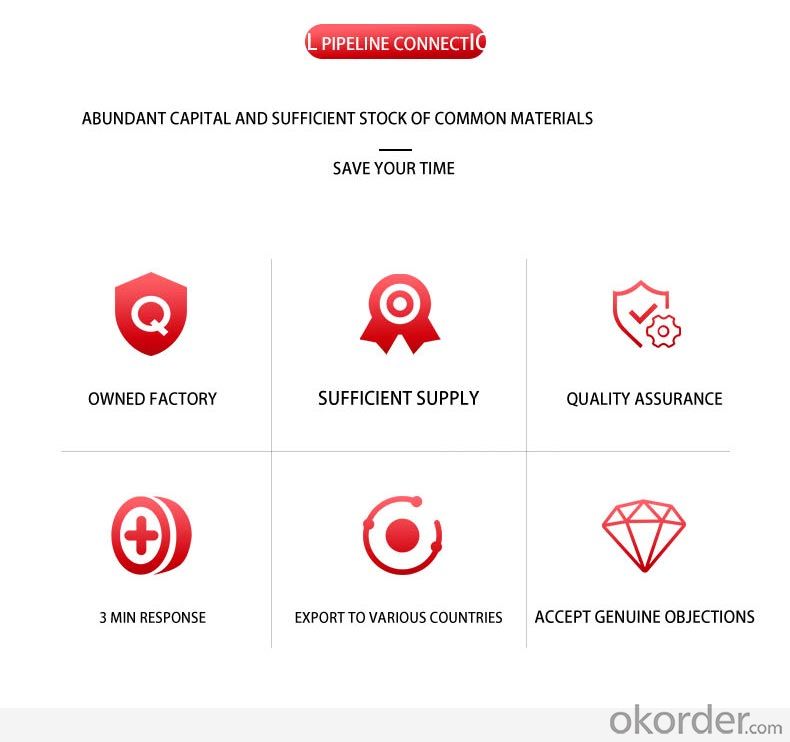
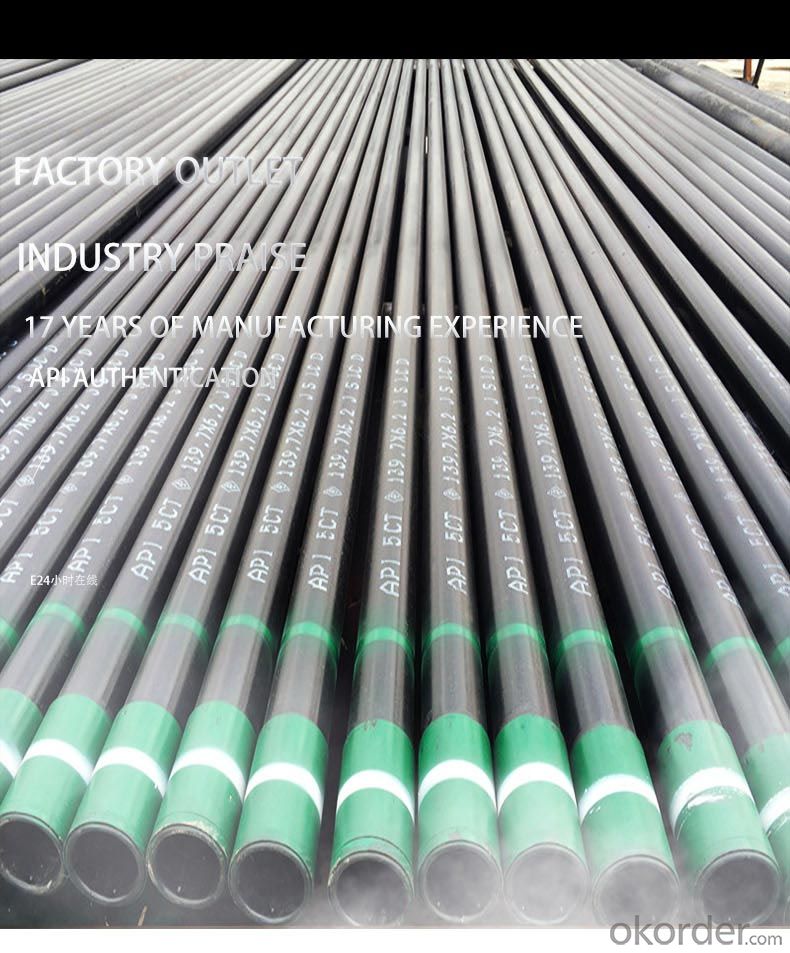
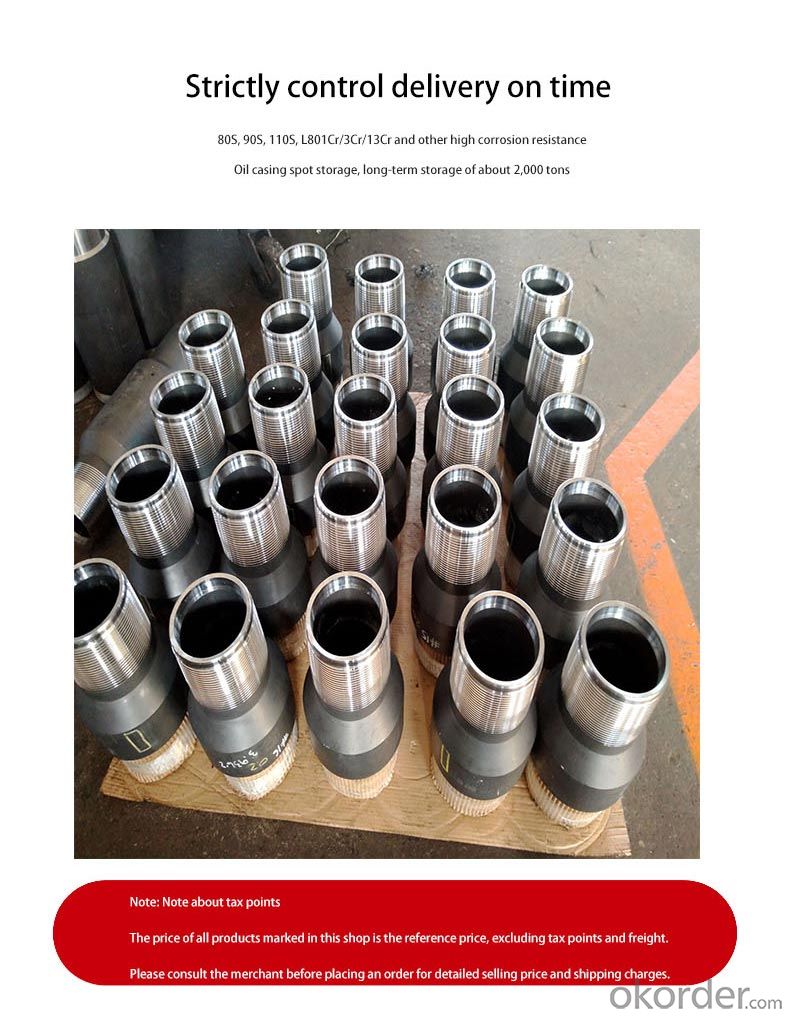
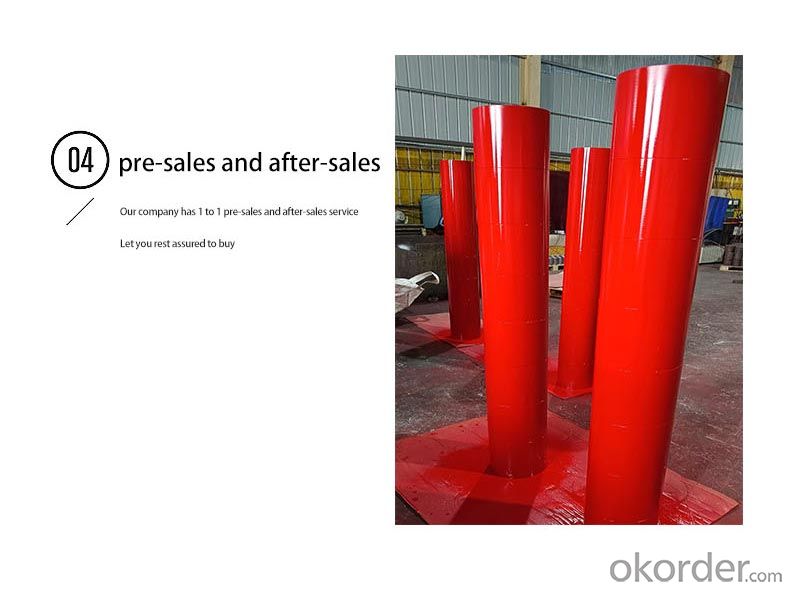
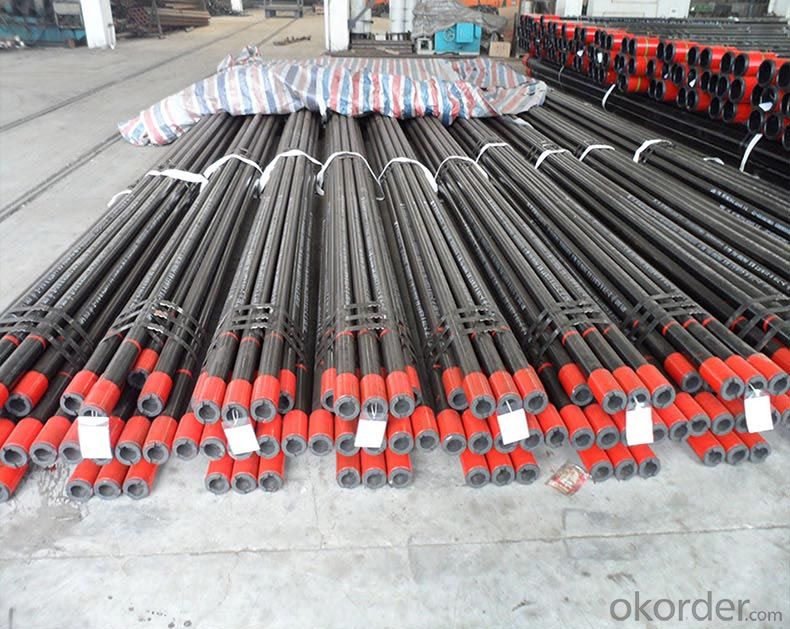
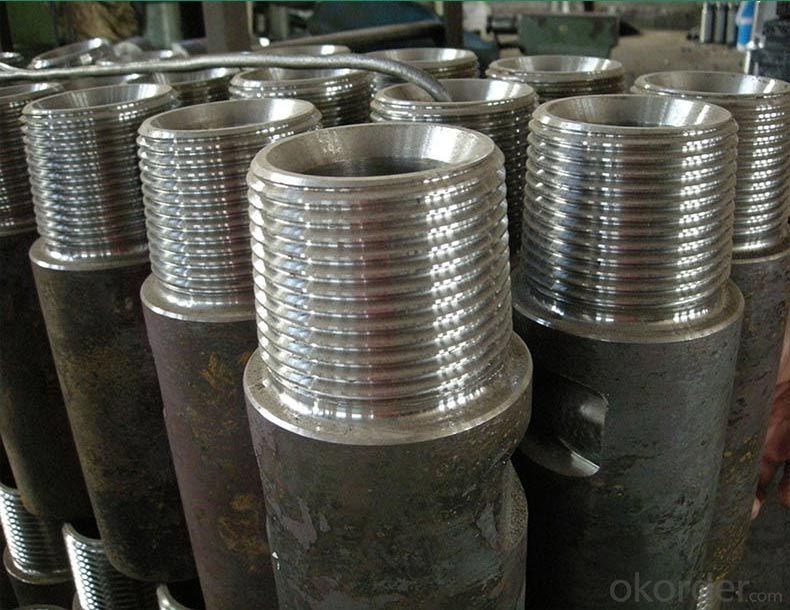
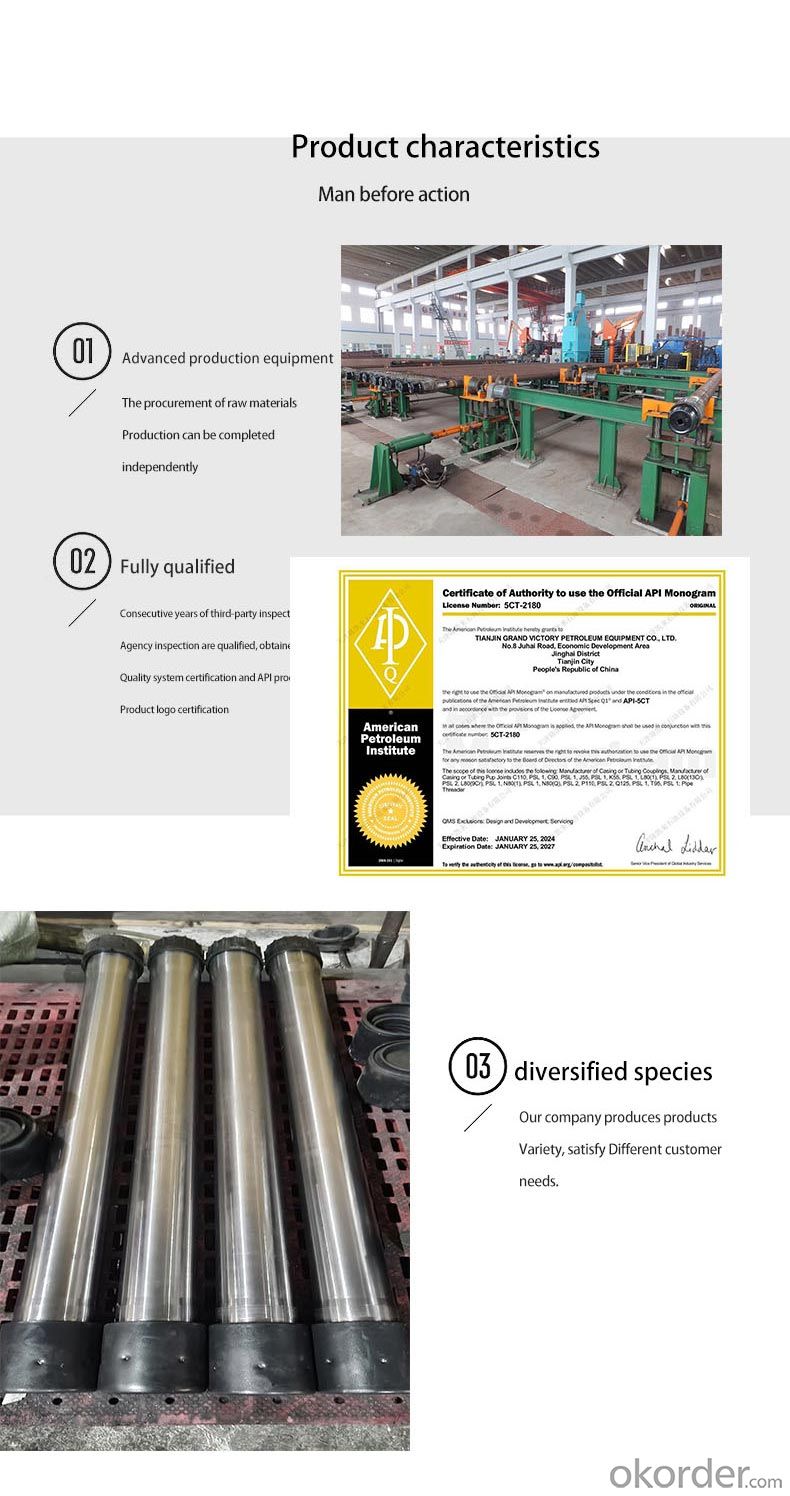
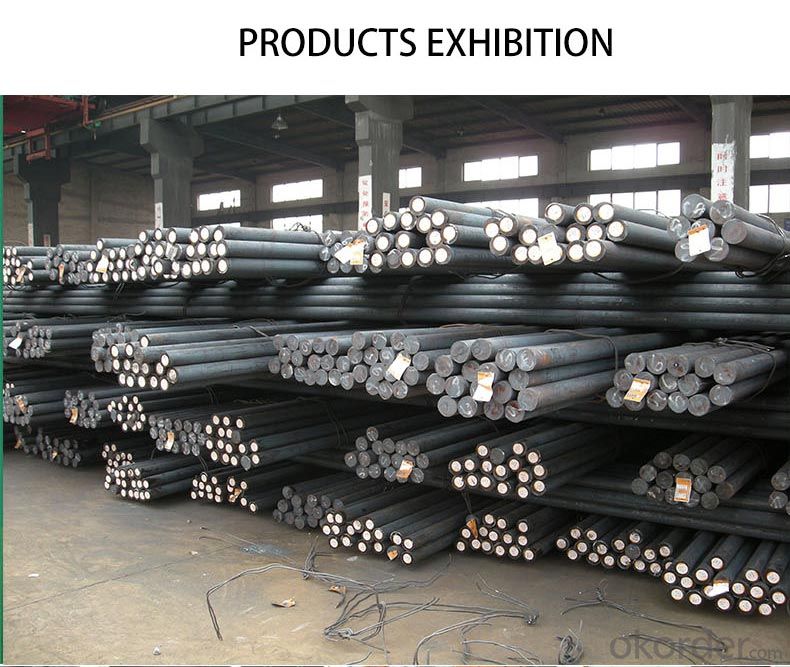
- Q: How are steel pipes used in desalination plants?
- Steel pipes are used in desalination plants to transport and distribute the seawater and treated water throughout the facility. They are durable and resistant to corrosion, ensuring the efficient and reliable movement of water in the desalination process.
- Q: How are steel pipes graded?
- Steel pipes are graded based on several factors to determine their quality and suitability for specific applications. The grading system for steel pipes typically includes parameters such as the chemical composition, mechanical properties, manufacturing method, and testing standards. 1. Chemical composition: Steel pipes are graded based on the elements present in their composition. This includes the amount of carbon, manganese, phosphorus, sulfur, and other alloying elements. The chemical composition greatly influences the pipe's strength, corrosion resistance, and other properties. 2. Mechanical properties: The mechanical properties of steel pipes are crucial for determining their strength, flexibility, and resistance to pressure and temperature. These properties include tensile strength, yield strength, elongation, hardness, and impact toughness. Pipes with higher mechanical properties are generally graded higher. 3. Manufacturing method: Steel pipes can be manufactured using various methods, such as seamless, welded, or ERW (Electric Resistance Welding). The manufacturing method affects the pipe's integrity, dimensional accuracy, and overall quality. Seamless pipes, for example, are considered to have higher quality due to their uniformity and absence of weld seams. 4. Testing standards: Steel pipes are graded based on their adherence to specific testing standards. These standards ensure that the pipes meet the required quality criteria and are suitable for their intended applications. Common testing standards include ASTM (American Society for Testing and Materials), API (American Petroleum Institute), and EN (European Norms). Based on these factors, steel pipes are often graded using alphanumeric codes or specifications. For instance, pipes used in oil and gas industry may be graded as API 5L (American Petroleum Institute) or pipes used for structural purposes may be graded as ASTM A500 (American Society for Testing and Materials). In conclusion, steel pipes are graded based on their chemical composition, mechanical properties, manufacturing method, and adherence to testing standards. These grades help customers and manufacturers in selecting the appropriate pipes for specific applications, ensuring safety, durability, and efficiency in various industries.
- Q: How are steel pipes protected against external impact or mechanical damage?
- Steel pipes are protected against external impact or mechanical damage through various methods. One commonly used technique is the application of a protective coating on the surface of the pipe. This coating acts as a barrier and helps to prevent direct contact between the pipe and any external objects or forces. Coatings such as epoxy, polyethylene, or polyurethane are often used as they provide excellent resistance to impact and abrasion. Another method of protection is the use of pipe supports or clamps. These supports are installed at regular intervals along the length of the pipe to provide stability and prevent excessive movement or vibration. They help distribute the load and absorb any external impacts, reducing the risk of mechanical damage. In addition, steel pipes can be reinforced by wrapping them with materials such as fiberglass, carbon fiber, or kevlar. These reinforcement materials add an extra layer of strength and durability, making the pipes more resistant to external impact and mechanical damage. Furthermore, measures such as burying the pipes underground or installing them within protective casings can also provide an additional layer of protection. This helps shield the pipes from direct contact with external objects, reducing the risk of damage from accidental impacts or environmental factors. Overall, a combination of protective coatings, supports, reinforcements, and proper installation methods help ensure that steel pipes are safeguarded against external impact or mechanical damage, thereby prolonging their lifespan and maintaining their structural integrity.
- Q: What is the difference between seamless steel pipe and welded pipe?
- Such as hydraulic equipment pipeline connection. The weld seam of common steel pipe is its weak link, and the quality of weld is the main factor that affects its overall performance. People who have lived in the north have experienced the experience of freezing pipes and pipes in winter, and the places where they burst are usually welds. Welded pipe is not seamless steel pipe.
- Q: Can steel pipes be used for automotive applications?
- Yes, steel pipes can be used for automotive applications. Steel pipes are commonly used for various automotive components such as exhaust systems, fuel lines, and structural frames due to their high strength, durability, and resistance to corrosion. They provide reliable performance and are cost-effective in automotive manufacturing.
- Q: Are steel pipes suitable for structural applications?
- Yes, steel pipes are suitable for structural applications. Steel pipes are known for their strength, durability, and versatility, making them ideal for various structural applications. They can be used in buildings, bridges, stadiums, and other structures to provide support and stability. Steel pipes have high tensile strength, which allows them to withstand heavy loads and resist deformation under pressure. Additionally, their resistance to corrosion makes them a reliable choice for structural applications, even in harsh environments. The use of steel pipes in structural applications is further enhanced by their cost-effectiveness and easy installation. Overall, steel pipes are a popular choice in the construction industry due to their strength, durability, versatility, and cost-effectiveness.
- Q: What are the different types of corrosion that can affect steel pipes?
- There are several types of corrosion that can affect steel pipes, including uniform corrosion, pitting corrosion, crevice corrosion, galvanic corrosion, and stress corrosion cracking.
- Q: Can steel pipes be recycled after their useful life?
- Steel pipes can indeed be recycled once they have served their purpose. Steel, being an incredibly recyclable substance, can be recycled even in the form of pipes. The recycling of steel pipes entails the collection of used pipes, followed by thorough cleaning to eliminate any impurities, and finally transforming them into fresh steel products. This recycling process contributes to the preservation of natural resources, curbs energy usage, and limits waste generation. Moreover, recycling steel pipes aids in mitigating the environmental repercussions linked to the manufacturing of new steel.
- Q: What is the difference between steel pipes and ductile iron pipes?
- Steel pipes and ductile iron pipes are both commonly used for conveying fluids and gases, but they have notable differences. The main distinction lies in their composition and properties. Steel pipes are made of an alloy of iron and carbon, providing them with high strength and durability. On the other hand, ductile iron pipes are composed of iron, carbon, and small amounts of other elements such as silicon and manganese, which make them more flexible and resistant to bending. Ductile iron pipes also have superior corrosion resistance compared to steel pipes. Overall, steel pipes are preferred for applications requiring higher strength and pressure resistance, while ductile iron pipes are often chosen for their flexibility and corrosion resistance.
- Q: What are the different types of steel pipe coatings?
- There are several types of steel pipe coatings, including epoxy coatings, polyethylene coatings, polyurethane coatings, and zinc coatings. These coatings help protect the steel pipes from corrosion, increase their lifespan, and improve their performance in various environments.
Send your message to us
418mm P110 Corrosion-Resistant Petroleum Tubing for Oil and Gas Transportation and Deep-Well Drillin
- Loading Port:
- Tianjin
- Payment Terms:
- TT OR LC
- Min Order Qty:
- 1 m.t.
- Supply Capability:
- 1100 m.t./month
OKorder Service Pledge
Quality Product, Order Online Tracking, Timely Delivery
OKorder Financial Service
Credit Rating, Credit Services, Credit Purchasing
Similar products
Hot products
Related keywords
